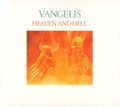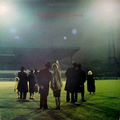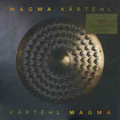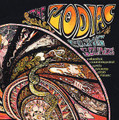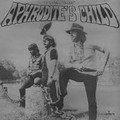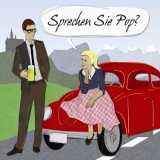 Loading... Please wait...
Loading... Please wait...Categories
Currency Converter
Choose a currency below to display product prices in the selected currency.
Add to Wish List
You Recently Viewed...
New Products
-
$24.02

-
$25.12

-
$43.69

-
$34.95

-
$13.66

Our Newsletter
VA-SPRECHEN SIE POP?-60/70s SONGS IN BROKEN GERMAN-NEW CD
Product Description
SPRECHEN SIE POP?-60/70s SONGS IN BROKEN GERMAN-NEW CD
SPRECHEN SIE POP? (Do you speak Pop?) NEW CD
Various - Sprechen Sie Pop? album cover
More images
Various – Sprechen Sie Pop?
Label: Bureau B – BB19
Format:
CD, Compilation, Digipak
Country: Germany
Released: 2008
Genre: Rock, Pop
Style: Schlager, Yé-Yé
1 Katja Holländer– Er Heißt Peter
Lyrics By – Kurt Feltz
Music By – Werner Scharfenberger
2:48
2 Die Skalden*– Du Hast Mich Lieb
Lyrics By – Ingeburg Branoner, Wojciech Mlynarski*
Music By – Andrzej Zielinski*
2:15
3 Adamo– Zeit Ist Geld
Lyrics By – Walter Brandin
Music By – Salvatore Adamo*
4:39
4 Sandie Shaw– Sommerwind
Lyrics By – Rolf Kauka
Music By – Peter Thomas
3:25
5 Rote Gitarren*– Ich Steh' Hier Und Warte
Lyrics By – Ingeburg Branoner, Krzysztof Dzikowski
Music By – Seweryn Krajewski
3:21
6 Juliette Gréco– Die Gammlerin
Lyrics By – Martin Morlock
Music By, Lyrics By – Guy Beart*
2:34
7 Graham Bonney– Das Girl Mit Dem La-La-La
Music By, Lyrics By – Barry Mason, Graham Bonney, Hans Blum
2:52
8 Antoine (2)– Hallo, Bonjour, Salut
Music By, Lyrics By – Antoine (2)
2:16
9 Séverine– Heißer Als Feuer
Lyrics By – Hans-Ulrich Weigel*
Music By, Lyrics By – C.W. Smith*, G. Jackson*, R. Miner*
3:28
10 Joe Dassin– Sie War Ooh!
Lyrics By – C.U. Blecher*
Music By, Lyrics By – Joe Dassin, P. Delanoe*
4:39
11 Barbara (5)– Wenn Schon Sterben Dann Schon Sterben
Lyrics By – Walter Brandin
Music By, Lyrics By – Barbara (5)
2:53
12 Paul Anka– Mir Geht Es Gut
Music By, Lyrics By – Paul Anka, Günther Loose*
2:13
13 Kati Kovács– Flügel Mit Zwei Beinen
Lyrics By – István S. Nagy*, Wolfgang Brandenstein
Music By – Tibor Koncz
3:11
14 France Gall– Wassermann Und Fisch
Music By, Lyrics By – Hans Blum
2:28
15 Elisa Gabbai– Winter In Kanada
Lyrics By – Georg Buschor
Music By – Christian Bruhn
3:29
16 Sue & Sunny– Shame On You
Lyrics By – Lambert Fleming
Music By, Lyrics By – Hans Blum
2:11
17 Sylvie Vartan– Ein Kleines Herz Auf Der Haut
Lyrics By – M. Kunze*, P. Grillet*
Music By – P. Coulter, B. Martin*
3:35
18 Illés– Hier Stand Die Sonne Hoch
Lyrics By – Gisela Steineckert
Music By – Levente Szörenyi*
3:39
Phonographic Copyright ℗ – Bureau B
Copyright © – Bureau B
Distributed By – Indigo (2) – CD 914932
Licensed From – Universal Music Germany
Licensed From – Sony BMG Music Entertainment (Germany) GmbH
Licensed From – Warner Music Germany
Manufactured By – Optimal Media Production – A843358
Published By – Radio Music International
Published By – Edition Hans Gerig
Published By – Copyright Control
Published By – Night Music Verlag
Published By – Arabella Musikverlag
Published By – Éditions Espace
Published By – Warner/Chappell
Published By – United Artists (2)
Published By – Chappell
Published By – Radio Tele
Published By – Métropolitaines
Published By – Montana (2)
Published By – Chrysalis Music
Published By – EMI Music Publishing
Published By – Gerig
Published By – Hansa
Published By – Intro (4)
Published By – Accord (5)
Published By – EMI Music
Phonographic Copyright ℗ – Universal Domestic Division
Phonographic Copyright ℗ – BMG Berlin Musik GmbH
Phonographic Copyright ℗ – AMIGA
Phonographic Copyright ℗ – Emi Music Belgium
Phonographic Copyright ℗ – Polydor France
Phonographic Copyright ℗ – Capitol Music
Phonographic Copyright ℗ – Disques Vogue
Phonographic Copyright ℗ – Sony Music Entertainment (France) S.A.
Phonographic Copyright ℗ – Mercury France
Phonographic Copyright ℗ – BMG Music
Phonographic Copyright ℗ – TELDEC »Telefunken-Decca« Schallplatten GmbH
Phonographic Copyright ℗ – EMI Electrola
Phonographic Copyright ℗ – BMG France
Artwork – Lena Röcker
Compiled By – Gunther Buskies
Liner Notes – Thomas Worthmann
Liner Notes [Translation] – Gareth Davies (7)
Mastered By – Willem Makkee
Tracks 1, 6, 11 licensed by Universal Music Germany
Tracks 2, 4, 7, 16 licensed by EMI
Tracks 3, 5, 8 to 10, 12, 13, 15, 17, 18 licensed by SonyBMG Germany
Track 14 licensed by Warner Music Germany
1: Radio Music Intern RMI, Rialto Edition Hans Gerig, 2, 5, 8, 13, 18: Copyright Control, 3: Night Music, 4: Arabella Musikverlag, 6: Espace, 7: Warner / Chappell, 9: United Artists/Chappell, 10: Radio Tele, 11: Metropolitaine/Montana, 12: Chrysalis Music / EMI Music Publishing, 14: Gerig, 15: Hansa/Intro, 16: Accord, 17: EMI Music
1: (P) 1966 Universal Domestic Division, a division of Universal Music GmbH, 2: (P) 1970 BMG Berlin Musik GmbH/Amiga Germany, 3: (P) 1969 EMI Music Belgium, 4: (P) 1971 Shavin Enterprises Ltd. under exclusive license to EMI Records Ltd., 5: (P) 1971 BMG Berlin Musik GmbH/Amiga Germany, 6: (P) 1966 Polydor (France), 7: (P) 1966 Capitol Music, A Division of EMI Music Germany GmbH & Co. KG, 8: (P) 1968 Diques Vogue, 9: (P) 1976 BMG Berlin Musik GmbH Germany, 10: (P) 1972 Sony Music Entertainment (France) S.A., 11: (P) 1967 Mercury (France), 12: (P) 195 BMG Music, 13: (P) 1974 BMG Berlin Musik GmbH/Amiga Germany, 14: (P)1970 Teldec Telefunken Decca Schallplatten GmbH, 15: (P) 1965 BMG Berlin Musik GmbH/Amiga Germany, 16: (P) 1967 EMI Electrola, 17: (P) 1978 BMG France, 18: (P) 1972 BMG Berlin Musik GmbH/Amiga Germany
This compilation (P) & (C) 2008 Bureau B
Barcode: 4 047179 149327
Rights Society: GEMA
Matrix / Runout: INDIGO CD 91493-2 A843358-01 manufactured by optimal media production
Mastering SID Code: ifpi L572
Mould SID Code: IFPI 9721
This compilation (Do you speak Pop?) presents artists from other countries who sing in German - or rather sang, because we are moving in that beautiful borderland between Beat, Easy Listening, Chanson and Schlager/Pop that were the 1960s and 70s. SPRECHEN SIE POP ¿ Tracklist 1) Katja Holländer - Er heißt Peter 2) Die Skalden - Du hast mich lieb 3) Adamo - Zeit ist Geld 4) Sandie Shaw ¿ Sommerwind 5) Rote Gitarren - Ich steh' hier und warte 6) Juliette Gréco - Die Gammlerin 7) Graham Bonney - Das Girl mit dem La-La-La 8) Antoine ¿ Hallo, Bonjour, Salut 9) Séverine - Heißer als Feuer 10) Joe Dassin - Sie war ooh! 11) Barbara - Wenn schon sterben ¿ 12) Paul Anka - Mir geht es gut 13) Kati Kovács - Flügel mit zwei Beinen 14) France Gall - Wassermann und Fisch 15) Elisa Gabbai - Winter in Kanada 16) Sue & Sunny - Shame On You 17) Sylvie Vartan - Ein kleines Herz auf der Haut 18) Illés - Hier stand die Sonne hoch This compilation: P+C 2008 Bureau B SPRECHEN SIE POP? CD / kat-Nr. BB 19 / Release date: 24. Okt. 2008 ¿Parlez vous Pop?¿ asked BUREAU B around some twelve months ago on a CD which had non-native speakers sing in French. Now the question is SPRECHEN SIE POP? (Do you speak Pop?), their latest compilation presenting artists from other countries who sing in German. Or rather sang, because again we are moving in that beautiful borderland between beat, easy listening, chanson and pop that were the 1960s and ¿70s. When music hadn¿t lost its innocence and singers conquered the hearts of their audience with their charming, broken German. It could hardly have been the melodious sing-song of the German language that had so many foreign vocalists tie their tongues in knots to master the lingo. It was, as always, all about fame and fortune ¿ at least as far as the West of the country, which was still divided at the time, was concerned. After all, Germany was one of the greatest music markets in the world during those years, and few acts were spared. It¿s a well-known fact that the Beatles and Elvis recorded the odd German track, and even Johnny Cash, The Temptations and the Beach Boys had to twist their tongues around German words at their record company¿s behest. The situation in Germany¿s East was slightly different: the GDR¿s political leaders were eager to prove to their citizens, who had already been contaminated by the capitalist media, that their socialist allies had a lot to offer in terms of hot beat music. The artists from the Eastern Bloc countries in turn hoped for a chance to make it to the other side of the Iron Curtain during their visits to East Germany (following in the footsteps of Czech crooner Karel Gott). Most of the male and female singers didn¿t have a clue just what they were singing about in that difficult-to-master tongue. Record companies hired translators, then the lyrics were written out in phonetics. Which worked fairly well as a rule, as recordings by Rote Gitarren or Paul Anka prove ¿ both of whom reportedly didn¿t speak a word of German. The compilation consciously gets by without established foreign stars such as Howard Carpendale, Roberto Blanco, Gitte and Mireille Matthieu, who were so omnipresent in Germany during their heyday that they were hardly considered ¿foreigners¿, their accent being perceived almost as some kind of dialect. For more information about the singers and their songs, please read the attached track-by-track liner notes. Have fun! Linernotes It is unlikely that the dulcet tones of the German language persuaded so many international artists to record songs in this tongue. As so often, fame and financial reward were more plausible motives ¿ Germany (the western half, to be more exact) was one of the most lucrative markets in the world. There were few who did not find themselves facing the linguistic hurdles of German. The Beatles and Elvis may have been the most prominent performers lost in translation exploits, but Johnny Cash, The Temptations and The Beach Boys all paid heed to their record companys¿ hunger for Deutschmarks in going Teutonic. In the German Democratic Republic, meanwhile, the political leadership sought to enlist the aid of international singers to show the western world that the socialist states knew a good beat when they heard one. Artists from deeper within the so-called Eastern Bloc secretly hoped that their own excursions into the German language might ease their passage beyond the Iron Curtain (a theory which Karel Gott successfully put into practice). Many of the vocalists collected here had no idea what they were actually singing. The record companies used translators and transcribed the results phonetically. This worked fairly well, as tracks by the Roten Gitarren or Paul Anka demonstrate ¿ in spite of them not speaking a single word of German. For the purposes of this compilation, we have passed over the likes of established international stars in Germany such as Howard Carpendale, Roberto Blanco, Gitte and Mireille Matthieu. Their popularity and virtual omnipresence meant that they were hardly seen as ¿foreigners¿ at all, their accents coming across more as dialects. 1) Katja Holländer: Er heißt Peter If the name Holländer sounds familiar, then you have probably heard of Katja¿s famous father, the great composer Friedrich Holländer (¿Ich bin von Kopf bis Fuß auf Liebe eingestellt¿/ ¿Falling In Love Again¿), who emigrated to the USA in 1933. This cheeky song about her boyfriend¿s passion for going walking was written for Katja by Werner Scharfenberger (¿Sugar Baby¿, ¿Seemann, lass das Träumen¿ etc.). He seems to have wondered just how close he could get to ¿These Boots Are Made For Walking¿ without being accused of plagiarism. He got pretty close. The lawyers left him alone, presumably because his chorus bore little resemblance to the original, sounding more like a typical German ¿Schlager¿. 2) Die Skalden: Du hast mich lieb The first three chords make it clear that the Polish Skalden (Skaldowie, The Scalds) knew what they were doing. Great songwriting from behind the Iron Curtain, more than a match for the British Zombies ¿ honeysweet melodies and intricate melodies. A trained ear might spot where they come from when lalala drifts into lailailai, but maybe they wanted it that way. Die Skalden were Poland¿s most successful Beat group ¿ along with the Roten Gitarren (Red Guitars, see track 5) ¿ and had plenty of fans in the GDR. 3) Adamo: Zeit ist Geld Slow Movement! Salvatore Adamo cannot possibly have known this buzzword of the early 21st century, but he was a precursor of the movement in 1969. He did not really get to grips with German pronounciation ¿ but it would be asking rather a lot of an Italian who grew up in the French-speaking part of Belgium ¿ a sleazy blues beat would have been better served by frivolous lyrics, but the troubadour opted to blend the classic themes of love and dreams with the urbane constraints of economics and decry the hectic age he was a part of with his ruminative rhymes. 4) Sandie Shaw: Sommerwind German wizard of sound Peter Thomas created a new musical genre with this track: Schlagerfunk. Groovy rhythms, combined with viscid harmonies of happiness. Which is fine when the singer is the stupendous Sandie Shaw. Unlike the majority of songs on this album, there was no English version of this song ¿ it was composed specifically for the German market. The lyrics were written by the creator of the popular german comic strip characters Fix & Foxi, no doubt because his production company financed the juicy film ¿Versuchung im Sommerwind¿ ¿ and this was the title song (Sandie even had a walk-on part). 5) Rote Gitarren: Ich stehe hier und warte Along with the Skalden (track 2), the Roten Gitarren (Czerwone Gitary, Red Guitars) from Warsaw were the darlings of the Polish youth ¿ and later their East German counterparts. In contrast to the Central Committee of the SED, who ¿banned¿ Beat music in 1965, the Polish government had no quibbles with the ¿monotony of yeh-yeh-yeh or whatever it is called¿ (Secretary-General Walter Ulbricht at the 11th plenum of the GDR Central Committee). Songwriter Sewerin Krajewski and his musicians brought three styles together in one song: a wah wah funk verse, wafting psychedelia in the chorus and classic Beat music in between. And boy, does it work. A hard act to follow. 6) Juliette Gréco: Die Gammlerin 2:32 The Quartier Latin¿s grande dame of chanson also did her bit to add a certain je ne sais quoi to the the unbeloved Krauts ¿ although she struggled to align all the syllables in time to the music. The original French title ¿La Rôdeuse¿ was aptly translated as ¿Gammlerin¿ (loafer), with the existentialist muse appearing as a lady of no fixed abode, roaming from park to coop (¿Mein Boudoir, von Fall zu Fall / war es ein Park, ein Hühnerstall¿). The arrangement is as light as a feather and who wouldn¿t wish for Madame Gréco under the eiderdown when she sounds like this. 7) Graham Bonney: Das Girl mit dem La-La-La If female vocalists had to sing about ¿boys¿ in German, Graham Bonney similarly had to serenade a ¿girl¿ time and again ¿ in this case the one with the la-la-la. Fair play to him, the British golden boy wrote this pretty little number himself ¿ no easy trick in the Schlager business. Interesting (only for Alevel language students and beyond) to note that German lyricist Hans Blum stuck to the neutral personal pronoun for ¿das Girl¿ (¿alles an ihm das ist schön¿), where even native speakers would have chosen the feminine form. It¿s anyone¿s guess what on earth the backing singers were thinking of in obscuring the pleasant lead vocals. The arranger was not available for comment. 8) Antoine: Hallo, Bonjour, Salut Otherwise a more provocative and critical character, Antoine and the world seem to be getting on just swell in this song ¿Alle sind nett und lieb su mir ¿ es tansen Swerge mit Feen, isch ab es wirklisch geseh¿n, Prinsen un Elfen mit Blumen im Aar¿ ¿ er, excuse me? Dwarves, fairies, princes and elves with flowers in their hair? Was Antoine in a good mood or could he have been tripping? Either way, Germany loved him. This 1968 self-penned number was a summer hit and the only German chart single for the friendly Frenchman. In the mid 1970s Antoine bid adieu to showbiz and set sail around the globe. 9) Séverine ¿ Heißer als Feuer Slick, mid-tempo disco was the order of the day for Séverine on this 1976 single. This suited her hairstyle much better than the more Schlager orientated material she was more readily associated with. Séverine was famous throughout Europe for ¿Un banc, un arbre, une rue¿ (the German title was ¿Mach die Augen zu¿) which saw her emerge victorious at the 1971 Eurovision Song Contest, or Grand Prix Eurovision de la Chanson Européenne, as it was then known. Jackie Wilson¿s original (¿Higher and Higher¿) can just about be detected in the melody, the sole clue to the origins of the soul classic from the late 1960s. Perfect for putting on your dancing shoes, nevertheless. 10) Joe Dassin: Sie war ooh! Hard to say whether Joe Dassin counts as an American or Frenchman, really. Born in New York to French parents who fled to France to escape McCarthy, scourge of the Communists, where he recorded his first single in French (1965) after another USA detour. Seven years later, Dassin found inspiration in The Beatles¿ ¿Get Back¿, coming up with this clone. Best known in Germany for his hit ¿Oh, Champs-Elysees¿, his accent was close to perfect ¿ amazing considering the fact that he never lived in Germany and was a Frenchman with American roots. 11) Barbara: Wenn schon sterben¿ ¿It¿s better to burn out than to fade away¿, as Neil Young once sang. Barbara expressed similar sentiments for an early exit in this song: ¿Wenn schon sterben, dann schon sterben, nicht erst in alten Tagen¿ (If dying, then dying / not in the evening of life) . If Barbara was not too specific about the ¿old days¿ in question, it is worth noting that she made it to year 68. Always dressed in black, the Parisian was a ¿woman one loves from afar¿, as the German writer Georg Stefan Troller commented enthusiastically in the 1967 liner notes for her only German language release. The femme fatale¿s most famous song was ¿Göttingen¿, popular in both France and Germany, as befits its unifying message. 12) Paul Anka: Mir geht es gut The guy the girls cried themselves to sleep over, the man with the irresistible son-in-law smile, didn¿t know what he was singing in German, but he will probably have guessed that it would have something to do with the ubiquitous theme of the fairer sex. It may not have been a bad thing that he was unable to decipher Günter Loose¿s lyrics, as they really were nothing to write home about. Still, the song has its charms, a spacious arrangement and airy kisses from Mr Anka to wrap the female listeners around his little finger as the tune comes to an end 13) Kati Kovács: Flügel mit zwei Beinen Digging deep in the acoustic crates, this saloon polka was a treat for GDR comrades. It defies description but the sum of its parts include a yodelling smurf, a gunshot, moog modulations and canned laughter. The grand piano of the title with just two legs - ¿Flügel mit zwei Beinen¿ - gives you some idea of the nonsense at work here. Trained dental assistant Kati Kovács from Budapest showed no restraint in seeking to add a splash of colour to grey socialist days. Maybe the Hungarian sense of humour is simply beyond us. No matter, success is what counts and this was one was on the money for Kovács. 14) France Gall: Wasserman und Fisch Another teen idol, this French girl¿s dress sense and hairstyles were copied by many youngsters of her sex. She came to fame in Germany with a translated version of the Chico Buarque classic ¿A Banda¿ (¿The B side of her single ¿Kilimandscharo¿, penned by star composer Hans Blum (a.k.a. Henry Valentino) has an infectious beat, snappy lyrics and ¿ naturellement ¿ a delectable French accent. Who could resist? 15) Elisa Gabbai: Winter in Canada Christian Bruhn has a gift for lush melody, as virtually every Schlager singer, male or female, will testify. His 1966 composition ¿Winter in Canada¿ gave the Israeli (not Italian) Elisa Gabbai a hit across the whole of Germany. (Mireille Matthieu, Gitte Haenning and Ingrid Peters all recorded their own versions later on.) The music sounds more like summer than winter, but the miracle of love (¿Wunder der Liebe¿) works in all seasons. An easy listening arrangement of the highest order. 16) Sue & Sunny: Shame On You A remarkable song (B-side to the dreadful ¿Hans und Franz in Germany¿ from the year 1967), proving just how convenient the marriage of two languages can be for a lyricist and his rhymes (Hans Blum, once again): double the rhyming possibilities! The result can be heard in couplets like: ¿It¿s so true my dear / ist ein Edelstein neben dir¿. What does it mean? Does anybody care? The Indian-born girls Yvonne (Sue) and Heather (Sunny) Wheatman landed the song and spent much of their youth in pursuit of success. They may not have become stars in their own right, but they have been immortalized as the voices on Joe Cocker¿s world famous version of ¿With a little help from my friends¿. 17) Sylvie Vartan: Ein kleines Herz auf der Haut Glam rock Schlager ¿ not the newest kid on the block in 1978, but this track somehow summed it up nicely. Originally from Bulgaria, the French singer Sylvie Vartan lived up to her reputation as a blonde sex bomb, coaxing the listener to think about her erogenous zones as she sings about tatoos in places only her lover can see ¿ whether she meant her husband Johnny Hallyday is not clear, as the pair were heading for a divorce. In spite of her tireless efforts, Sylvie Vartan was never as successful in Germany as her compatriates France Gall and Mireille Matthieu. 18) Illés: Hier steht die Sonne hoch. 1972 saw East German youth discover the sitar ¿ thanks to the Hungarian group Illés. Hypnotically recurring patterns, mysterious lyrics (by GDR author Gisela Steinecker) about whispering love and foal races ¿ pure psychedelia. When group founder Lajos Illés died in 2007, the Hungarian president offered his condolences. Back in the days, Illés and Omega fought their own battles for popularity, with the former billed as the ¿Hungarian Beatles¿ and the latter the Rolling Stones




